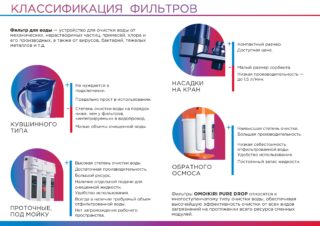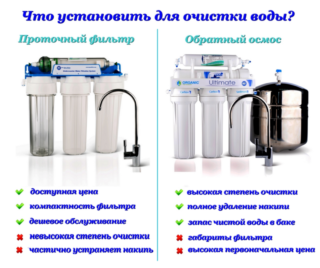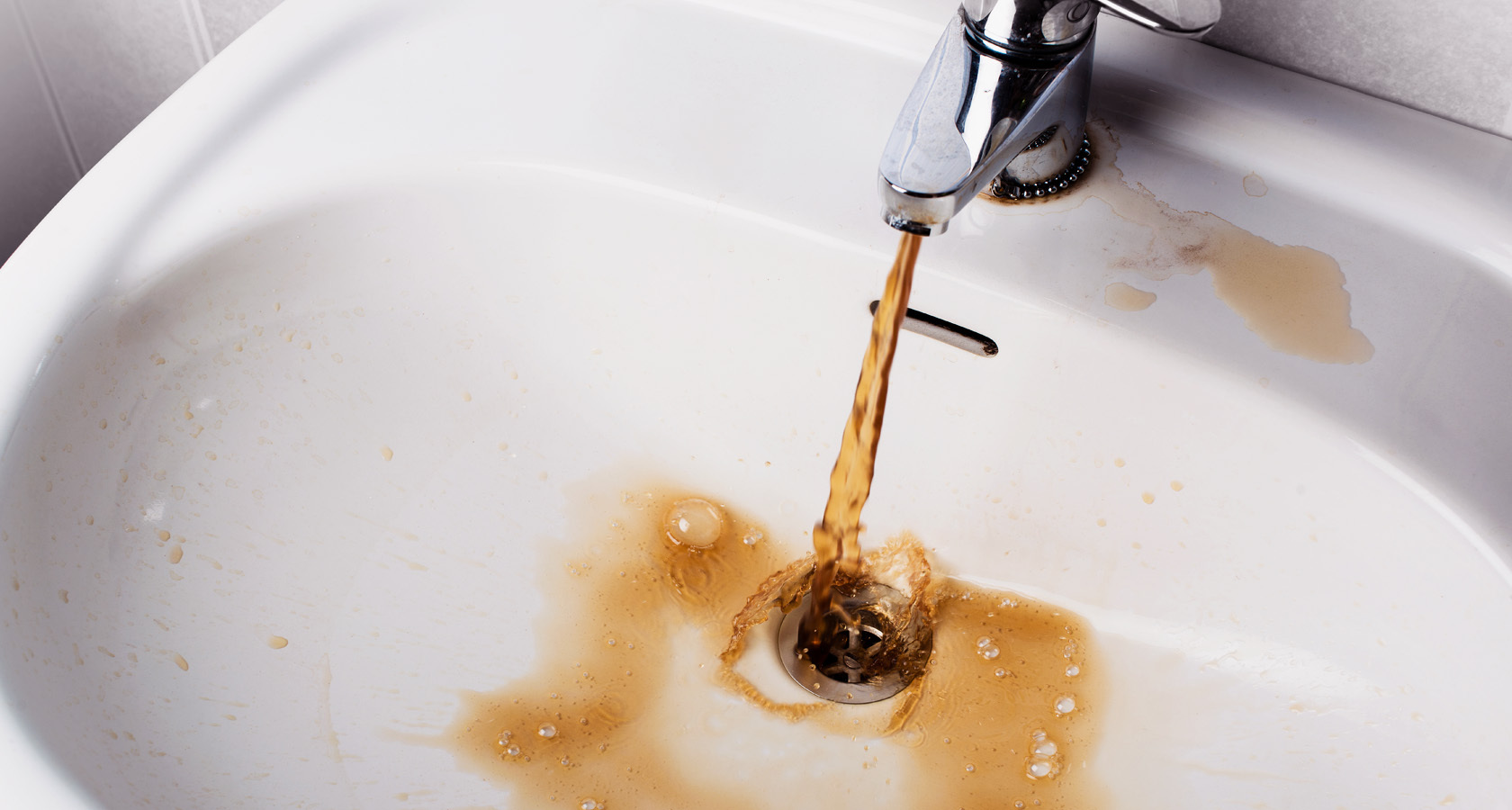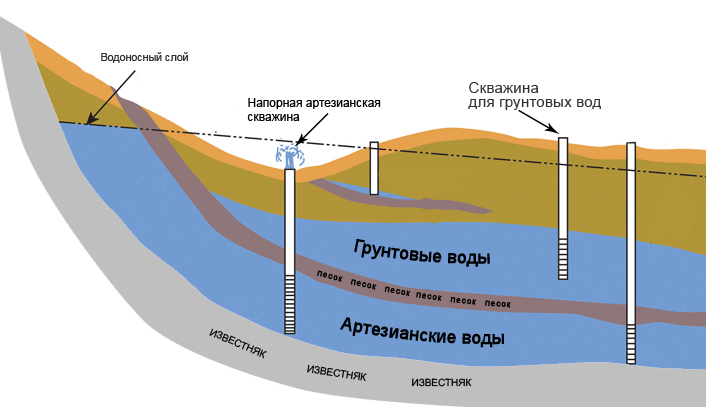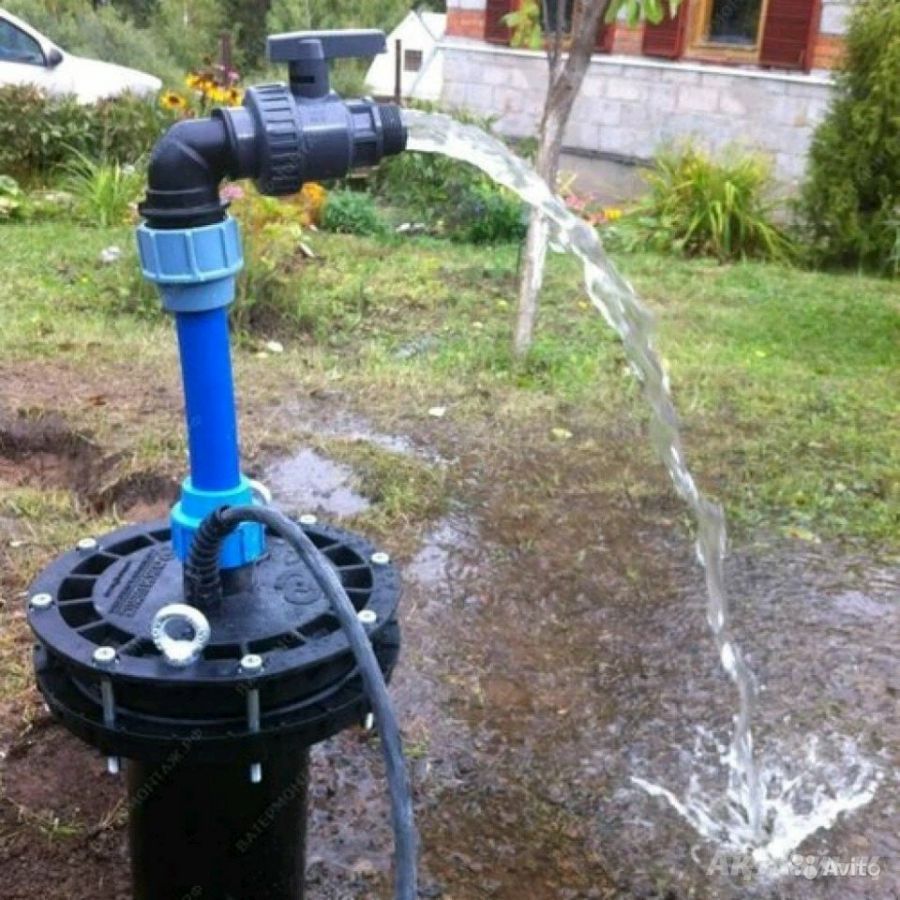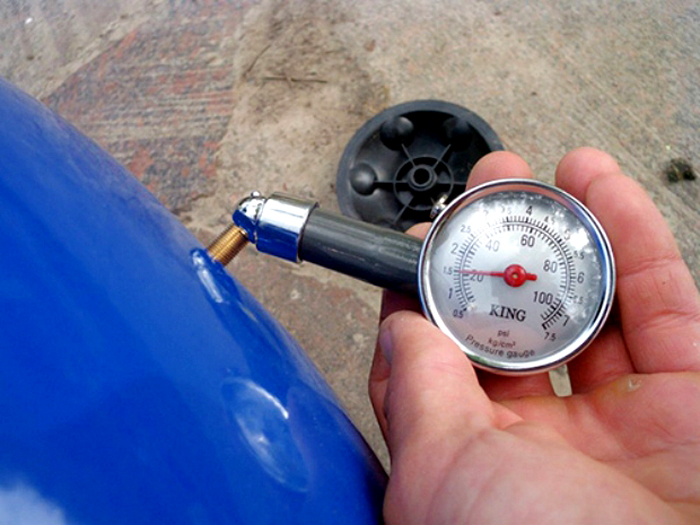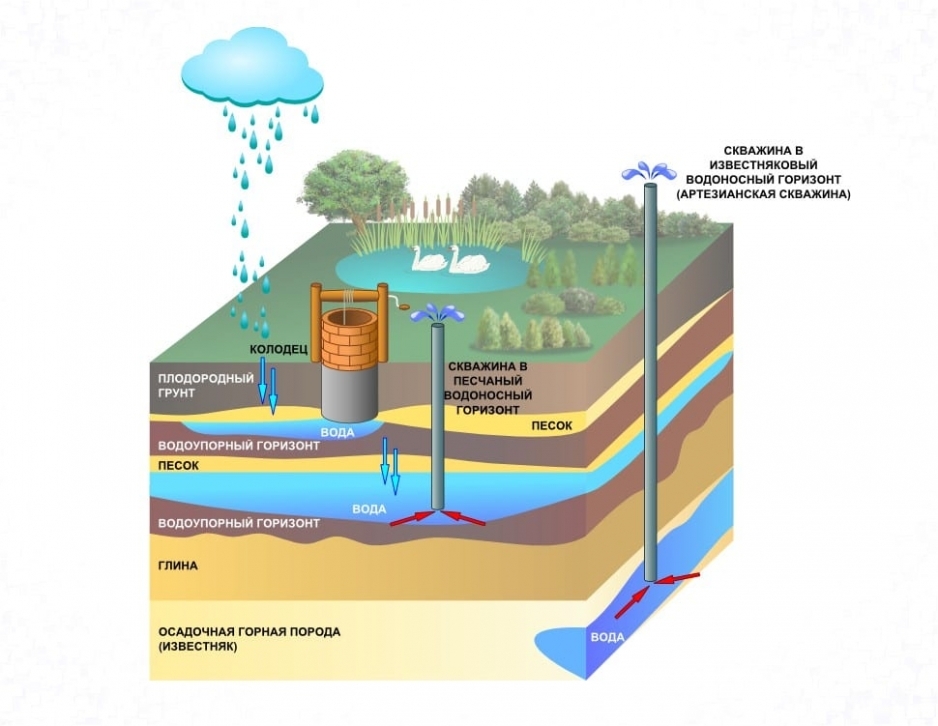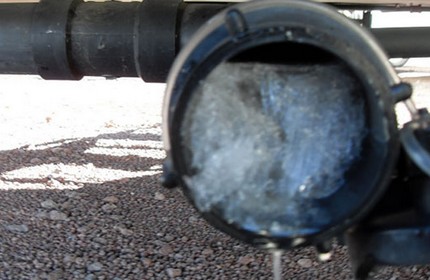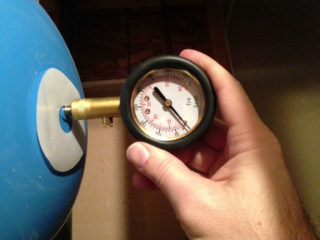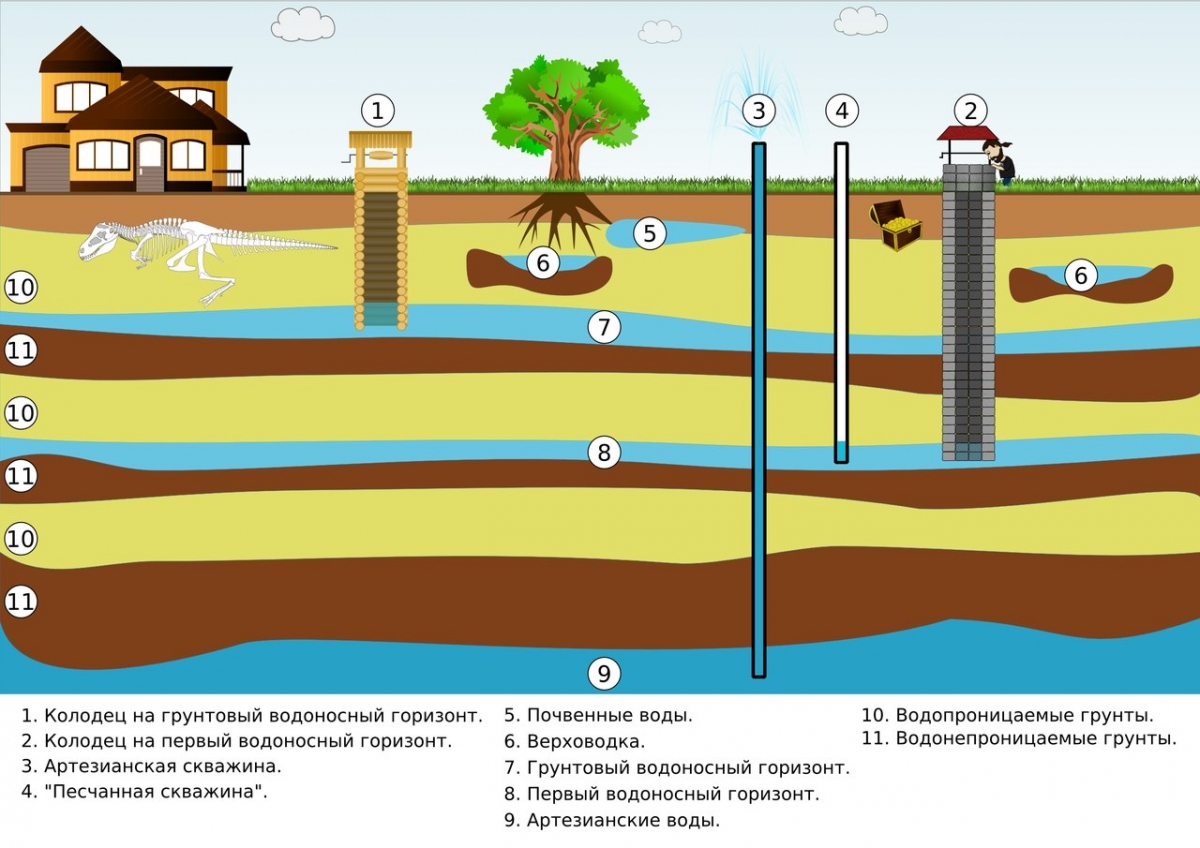The well is the main source of drinking and industrial water in a country house. It becomes the only one when there is no centralized water supply. The high quality of well water is the key to the health of the whole family, so the owner of the house has to use a variety of filters to purify water from the well in the country. The choice of the type of device depends on the water intake and the degree of contamination of the liquid.
The need to use filters for water from a well in the country
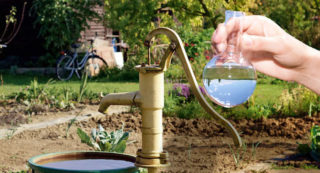
Placing a well on the site in compliance with all the requirements of SanPiN 2.1.5.980-00 and SNiP 2.04.02-84 * does not guarantee the purity of the water. External factors: soil composition, the depth of the aquifer, the presence of a swamp or navigable river nearby, a landfill or chemical production are just a small list of reasons that can make a shallow well unusable. If a warehouse with fertilizers or pesticides is located nearby, and harmful substances have seeped into the ground, it is better to bury the well. You cannot water the garden from it, as the plants will absorb the poison. Even water from artesian wells, raised from great depths, may need additional treatment if it does not meet sanitary standards.
There is an easy way to check a fluid for foreign matter. It is necessary to collect water from the well in a transparent bottle and put in the shade for 2-3 hours. In the presence of impurities, a sediment will appear at the bottom: limescale, grains, white or brownish flakes.
When a liquid with the smell of iron comes from a well or a well, over time, a yellowish or brown precipitate forms, therefore, a lot of Fe salts are dissolved in it. This happens when the aquifer passes through rocks saturated with this metal. Filtration alone will help reduce the iron ion content to 0.3 mg / l, which meets the standards.
If the water by external signs meets the standards: transparent, pleasant to the taste, there is no unpleasant smell - but doubts about its quality remain, it is necessary to analyze the composition in a specialized laboratory. In the future, the analysis data can be used to select the desired device.
Types of filters, principle of operation and device
- fine and coarse cleaning to remove mechanical impurities: sand, debris, large particles of bottom sludge;
- with a cartridge filled with ion-exchange resins for softening and removing dissolved metal salts: calcium, magnesium, iron;
- to improve taste, with a carbon cartridge, which provides cleaning from gaseous chlorine and organic impurities;
- for mineralization, saturating pre-purified distilled water with useful substances.
In a country house, the use of one or another type of device is limited primarily by the way in which the liquid is taken. At the dacha, water from the well is taken manually by a bucket or pumped by a drainage pump.
The water is easy to clean with a filter jug. The flask capacity of jugs of different brands is 1-4 liters. This is quite enough to provide for the family for a short time.Replace cartridges as they become dirty. A signal for replacement is a deterioration in taste and a slowdown in filtration. The resource is enough to clean 750 liters of liquid.
When a seasonal or permanent autonomous water supply is set up: a station for pumping water and equipment for mains purification is installed - it becomes possible to use a variety of filters at the dacha to purify water from a well.
The autonomous water supply system includes:
- well pump submersible or surface type;
- mesh filter for the hose for water from the well;
- a system of pipes or hoses for supplying water to the house;
- storage tank;
- filter system for cleaning, softening and improving the taste, located in front of the faucet in the kitchen.
Filters for purifying water entering a house from a well through an autonomous system may differ in the following parameters:
- the number of cleaning stages: from one to four;
- temperature regime: designed for hot or cold water;
- type of cartridges: winding, mesh and others.
Devices with a one-stage cleaning system are easy to operate, but provide minimal cleaning, quickly become dirty and require cartridge replacement.
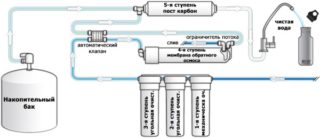
Products with a multi-stage system provide the highest quality water purification and mineralization. They are mounted under the sink in the kitchen. But to work, they need a significant head in the system. Only in this case is it ensured that the liquid is forced through the cleaning membrane. In addition, such a filter gives a high water consumption: when receiving 5 liters of clean liquid, 40 liters of dirty liquid are formed. The effluent is discharged into a septic tank or cesspool. Large volumes of liquid will quickly lead to overfilling and require more frequent use of the sewer service to pump wastewater. It's expensive. Therefore, it is expensive and impractical to use reverse osmosis membrane systems in the country.
Easy-to-use and affordable flow-through filters on the faucet. Models that are installed next to the tap or put on it provide 1-2 levels of cleaning due to mechanical removal of impurities and cleaning the liquid with a carbon filter. Installed under the sink, they provide three-stage cleaning.
Carbon filters quickly become clogged with sand, silted up, so they need to be replaced regularly in accordance with the instructions.
The presence of an autonomous water supply in the country allows the use of a flow-through main filter, which is of two types:
- Mesh: The trapping of sand or rust is provided by a fine-mesh multi-layer mesh.
- Cartridge: provides cleaning from mechanical suspensions, dissolved iron salts, chlorine gas. Replace cartridges as they become dirty.
When installing a main filter, the pressure drops in the system, therefore, when purchasing, it is necessary to choose a device with a minimum hydraulic loss, and also provide for the use of a more powerful drain pump.
Criterias of choice
Analyze the well fluid. It will show the degree of pollution or compliance with sanitary standards. Perhaps a filter jug is enough for your summer cottage. Or, on the contrary, only a multi-stage purification system, including several filters at once, will allow you to get a clean drink.
Depending on the task at hand, when choosing, you should take into account:
- How much drinking water does a family need every day? A jug filter can easily provide clean water for one or two people, but a large family will often have to change cartridges - this is quite expensive.Make calculations: it is possible that a filter for water from a well from a submersible pump will be cheaper in the long run, so it is cheaper to immediately equip an autonomous system.
- The qualitative composition of the liquid determines the type of filter that must provide: softening, deferrization, removal of microorganisms or harmful gases.
- The cost of consumables to ensure the operation of the device.
- The optimal combination of price and quality. Availability of warranty service.
It is not worth saving by purchasing cheap models of unknown brands. The filter must be made of quality materials that are resistant to aggressive aquatic environment, so that it does not itself become a source of pollution over time.
Installation features
The type of product determines the degree of complexity of the installation and the features of maintenance. The filter jug is supplied completely ready for use. We rinsed the flask, poured water into the receiver and after a while you can already drink. The installation of a flow-through filter nozzle on the tap also does not cause difficulties; it is carried out according to the instructions attached to the product.
Installation of a main or multi-stage membrane filter is quite complex and requires knowledge and technical skills. Therefore, if you are not sure whether to install the device strictly according to the instructions, it is better to invite specialists.
Operation and maintenance
In order for the filter for purifying water from the well to serve as long as possible, it is necessary to use it for its intended purpose, regularly service it, and change the cartridges. Do not use the cartridge after the warranty period: accumulated pathogens or harmful substances can cause diseases.
The selection of new efficient models reduces service time and provides significant savings on consumables. For example, when choosing a main filter, you should give preference to a self-cleaning model, which does not require constant attention and does not need to replace cartridges.

